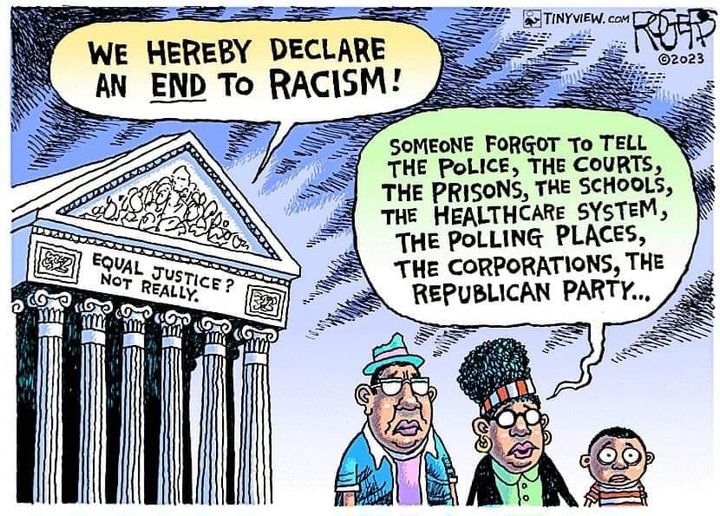You’ve all heard about Zuckerberg’s Meta taking on Musk’s Twitter. Meta’s product is called Threads. It’s a simple app that looks almost exactly like Twitter. Because it is linked to users’ Instagram accounts, it was immediately adopted by about 50 million people who have posted on the platform some 95 million times. It’s become the most rapidly downloaded app of all time.
That also eclipsed several other Twitter wanna-be’s like BlueSky (which has a million users), Mastodon (10+ million), Post, and Notes, all of which have been up and running for a few months but together, haven’t reached Threads’ 50+million users.
What Threads’ place in the social mediaverse will look like is anybody’s guess. But there are things we know right now, with certainty:
- Meta is a for-profit social media businesses. Its business model relies on selling ad space based on targeted markets and selling users’ information.
- Meta has been operating under a consent decree issued by the FTC in 2011 after it violated users’ privacy. Then it violated that agreement, resulting in a $5 billion fine which it has fought against paying.
- Meta’s track record on privacy isn’t great. It includes the non-consensual collection of personal data that was later used by Cambridge Analytica/SCL and may have been involved in influence operations during the 2016 election.
Wrongo joined Threads to see what the fuss is all about. It does look a lot like Twitter, and at the moment has a wild west feel. From Kyle Tharp:
“The social internet is in the midst of a massive upheaval right now, and no one really knows how it’s going to impact our politics next year. Americans’ social media diets are becoming more distributed and less trackable….I obviously think the internet will still have a major role to play next year, but predicting the future is harder than ever.”
If Threads has staying power, it will present both new opportunities and challenges for Meta. Facebook has been withdrawing its investments in news and politics over the past few years, which included killing its news partnerships division and deprioritizing political content in users’ Facebook feeds.
If Meta is going to become the online place for news consumption and political debate, it will face the same questions that Twitter and Facebook had to face: How will it handle content moderation and the spread of false or misleading content? How will fact-checking work on the platform? How much money is Meta willing to spend on that, especially after cutting those same investments in policy and integrity at Facebook? Will they allow political ads? On to cartoons.
Will Twitter unravel?
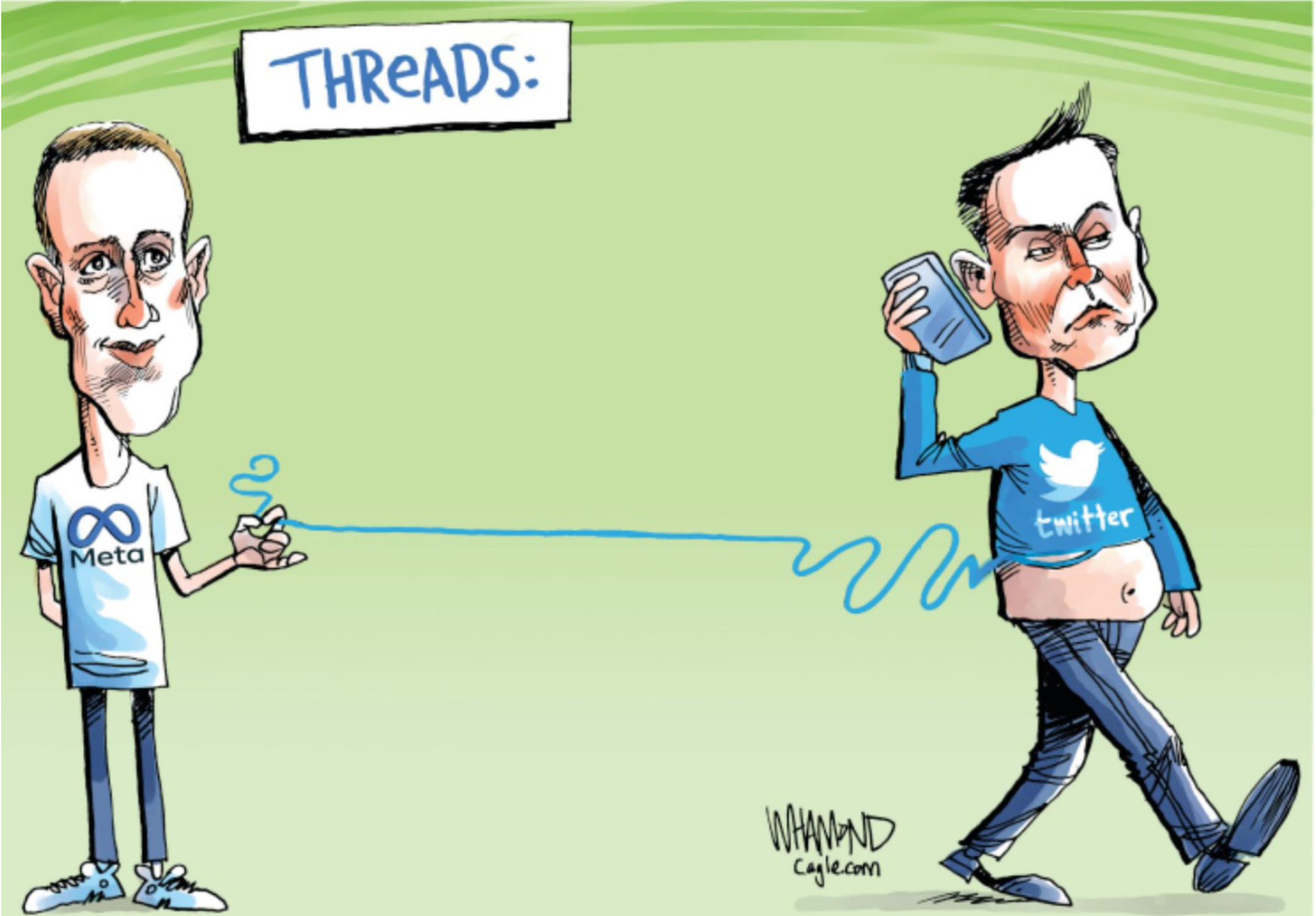
We’re melting:
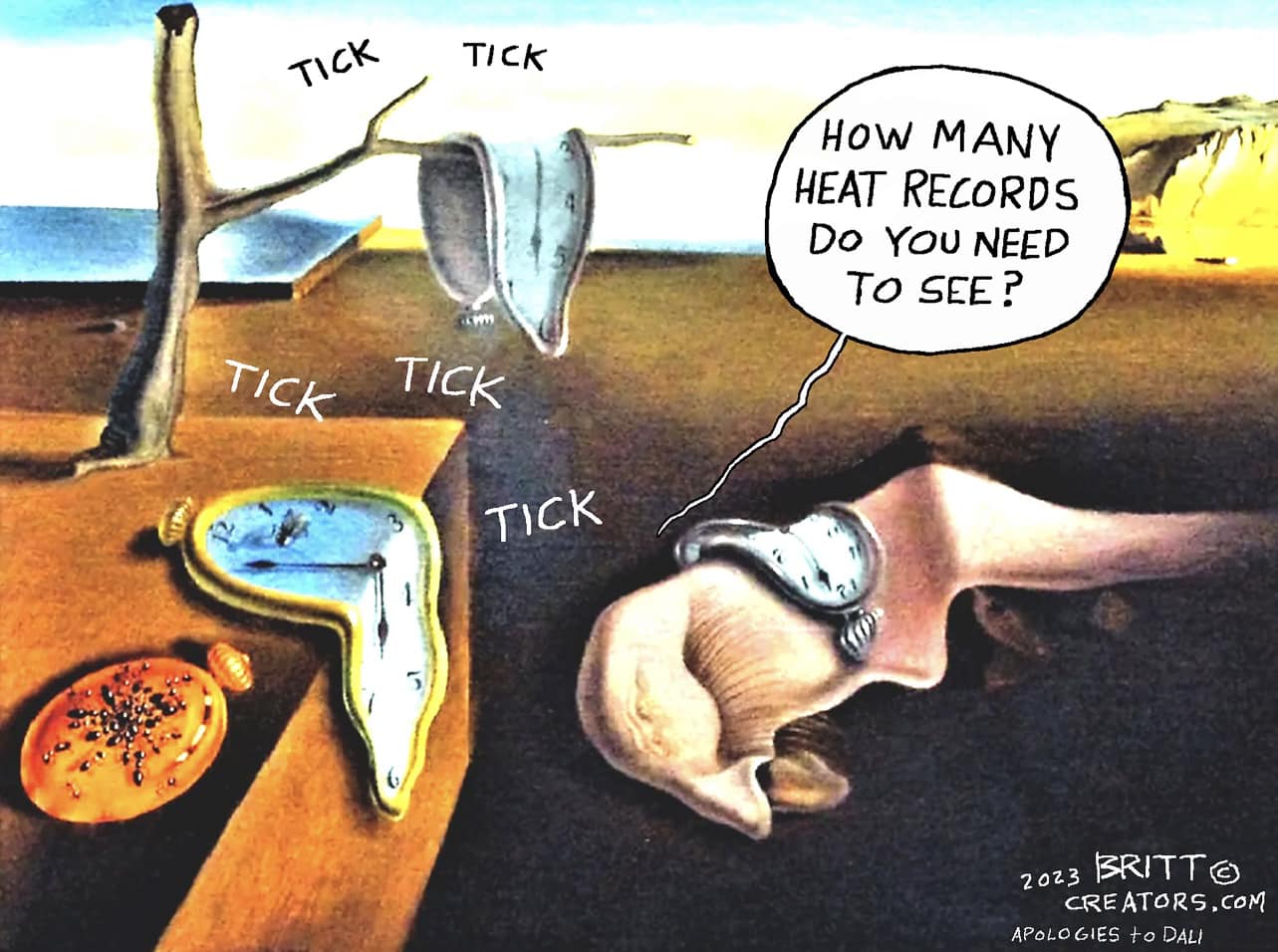
Supremes add to their must carry rules:
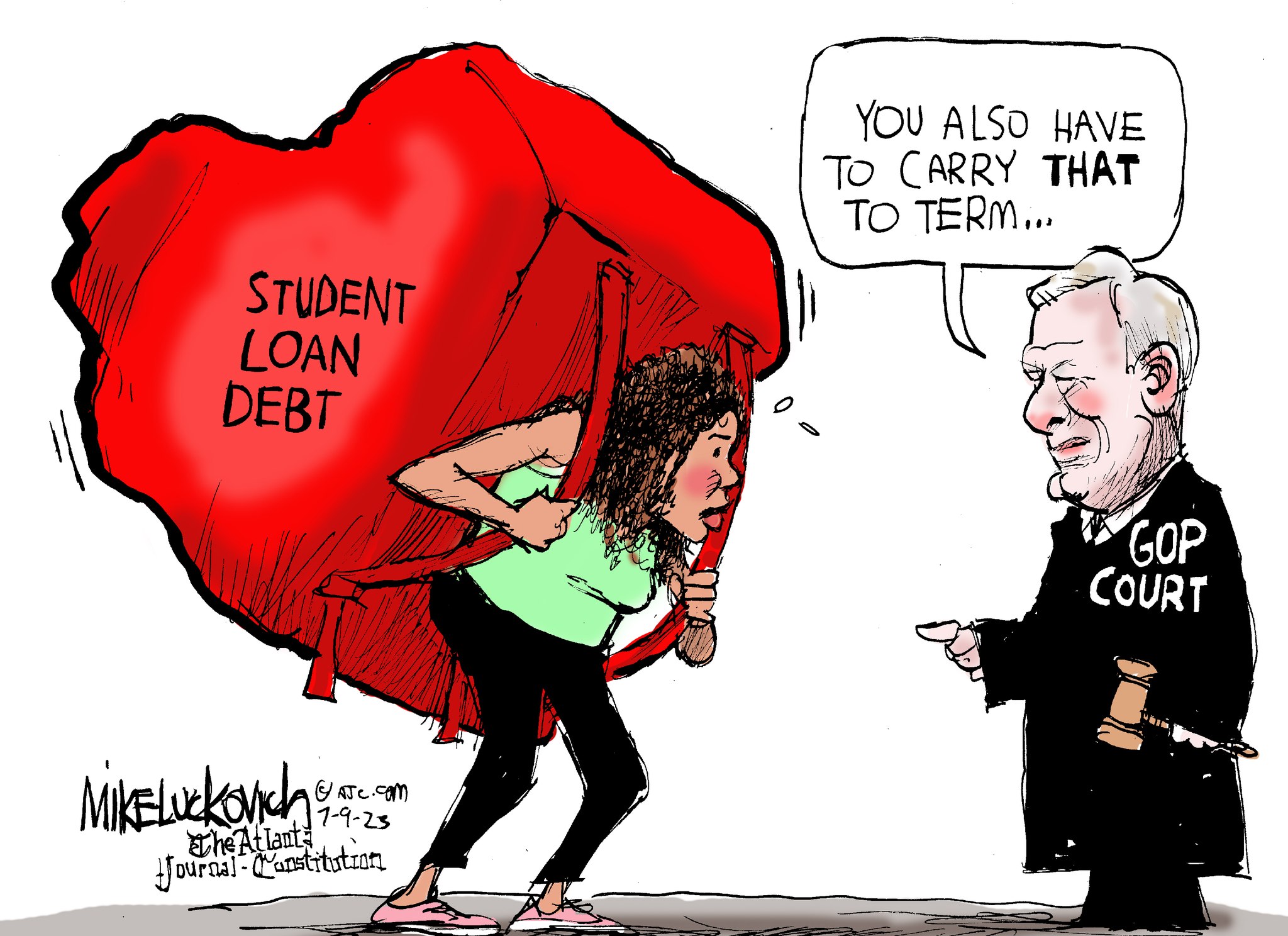
Supremes have redefined their branch of government:
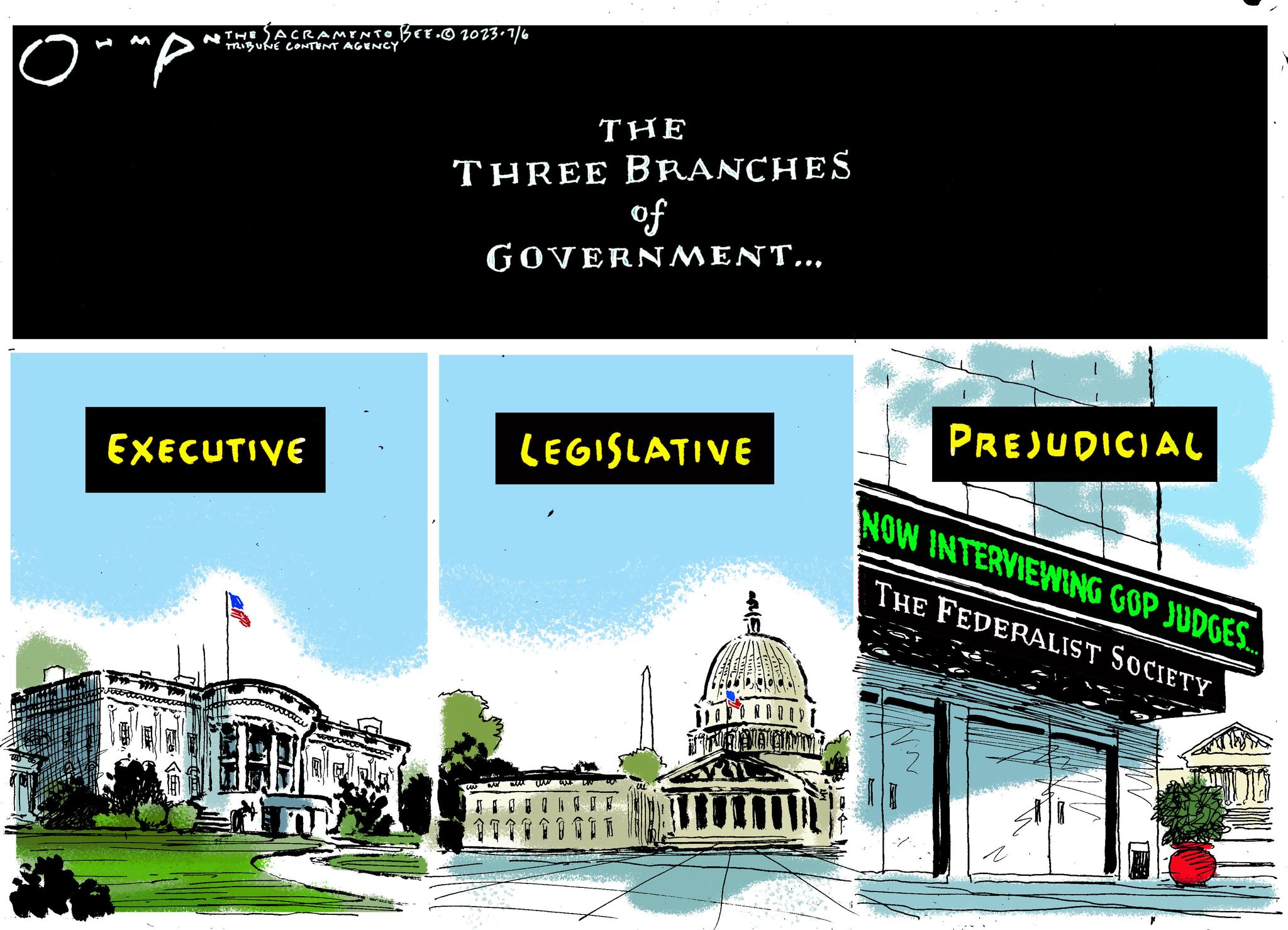
They’ve also redefined property ownership:
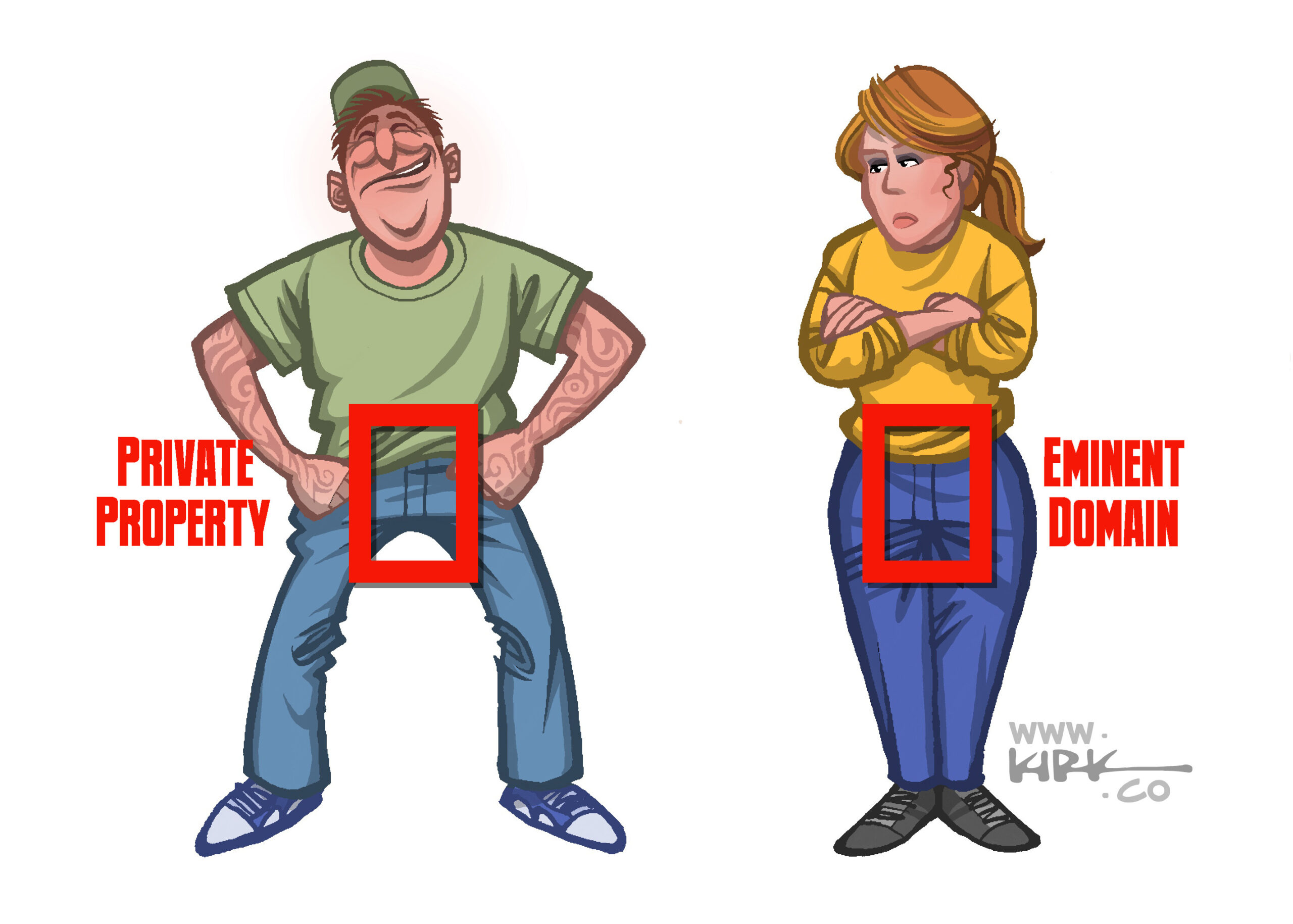
The Supremes say they’re ending racism:
